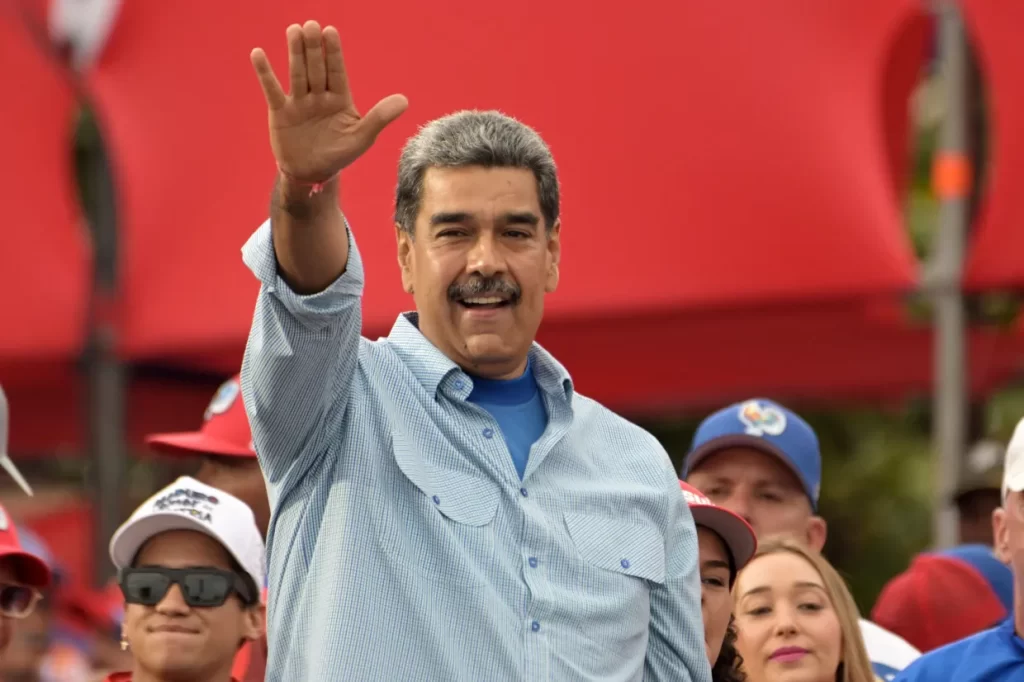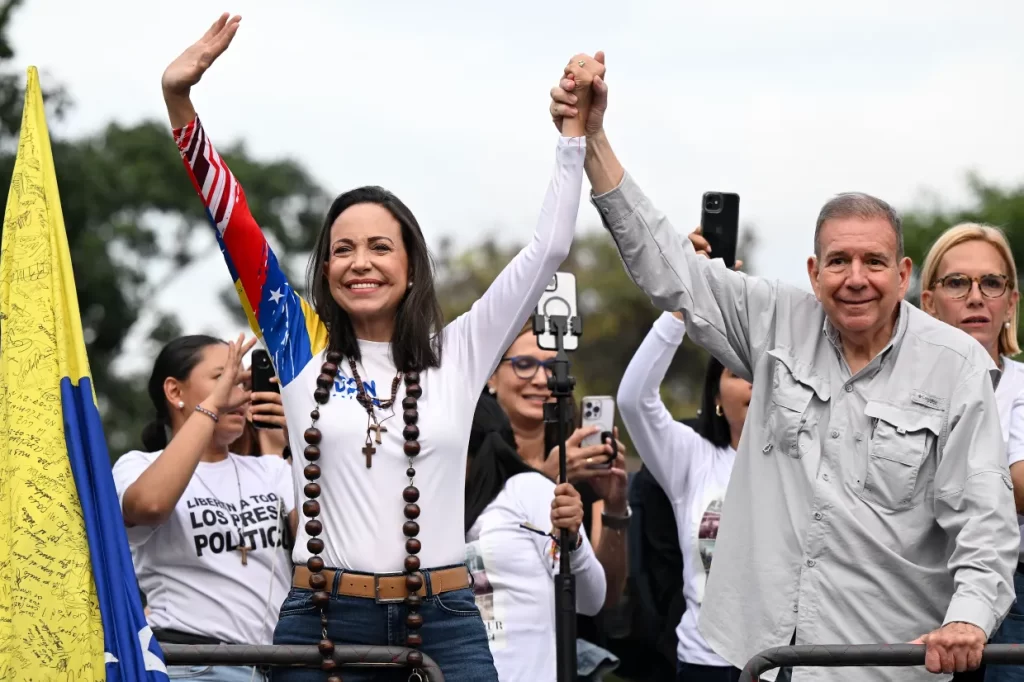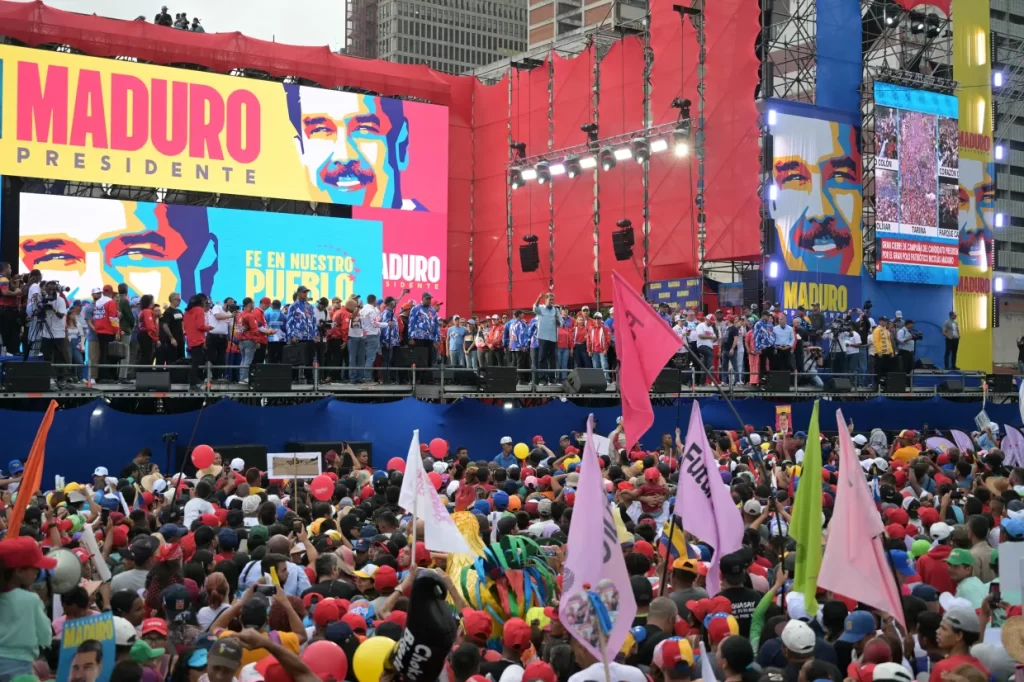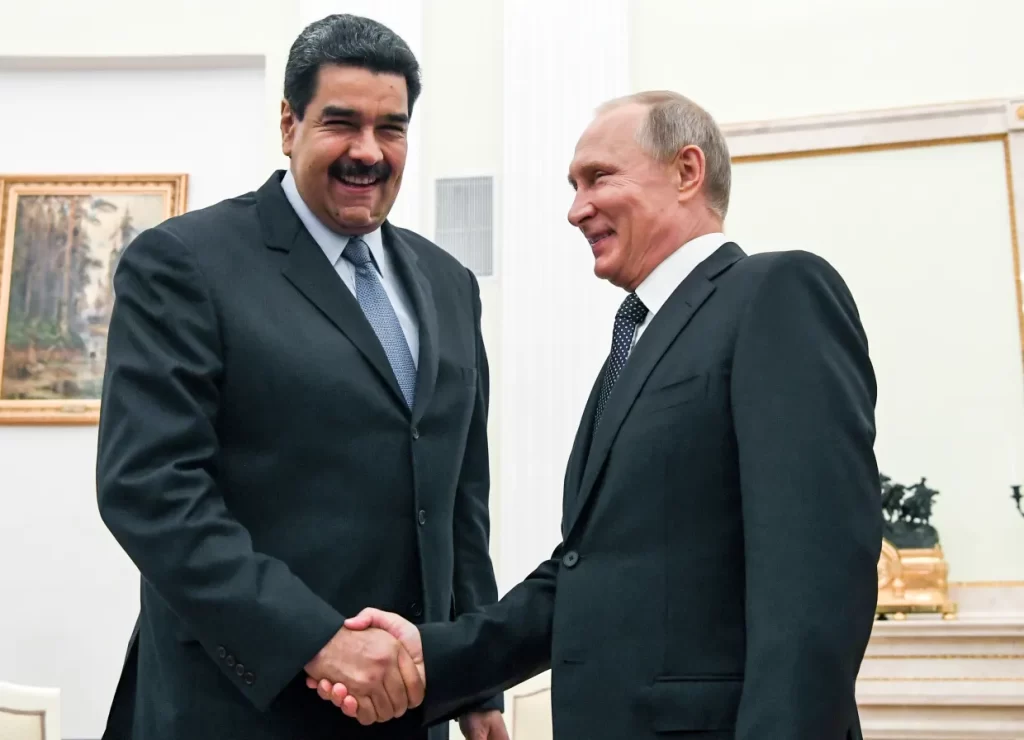As Venezuela approaches a crucial election, tensions are rising amid warnings of potential violence from incumbent President Nicolas Maduro, the sun-com reports. The South American nation, grappling with economic crisis and political instability, faces a pivotal moment that could shape its future and impact regional stability.

President Maduro, 61, who has ruled Venezuela for 11 years, is facing significant opposition in this election. The country’s economy has shrunk by 80 percent over the past decade, with hyperinflation and widespread poverty fueling discontent.
Maduro’s previous election victory in 2018, where he claimed 68 percent of the vote, was widely regarded as rigged, leading to a political crisis that saw opposition leader Juan Guaido claim the presidency with support from 57 countries, including the UK and US.

Recent polls suggest Maduro is trailing his opponents by 40 to 50 percentage points. In response, the president has issued stark warnings. At a rally, he declared, “If they jump a red light [by questioning the results], they will regret it for 200 years… There will be an iron fist and justice for the violent fascist protesters and the racists.” He further warned of a potential “bloodbath” and “fratricidal civil war” if the opposition disputes the election outcome.
Experts are concerned about the possibility of post-election violence. Andre Masuko, a research analyst for Latin America and the Caribbean at the Economist Intelligence Unit, told The Sun, “We think that he’s inciting violence because he knows he’s going to lose in a free and fair vote.” Masuko predicts both sides may declare victory, potentially leading to protests similar to those seen in 2019.

Dr. Christopher Sabatini, a senior fellow for Latin America at Chatham House, suggests that if large-scale protests erupt, Maduro might resort to violence to ensure his political survival. This could involve not only the military but also the ‘Colectivos’ – far-left paramilitaries and criminal organizations accused of killing hundreds of political opponents.
The international community is closely watching the situation. Russia, a key ally of Maduro’s government, has provided economic support and military advisers to Venezuela. There are concerns that Russian involvement could complicate potential international interventions aimed at ensuring a peaceful resolution.

Neighboring countries, particularly Brazil and Colombia, have a vested interest in a stable Venezuela. The economic crisis has already led to an exodus of 8 million Venezuelans, with another 8 million indicating their readiness to leave. Any further instability could exacerbate this migration crisis.
While a full-scale civil war is considered unlikely by experts, the potential for localized violence and political instability remains high. The loyalty of the military, especially junior officers and soldiers who have suffered economic hardships, could be a crucial factor in how events unfold.
As Venezuela approaches this critical juncture, the international community remains on alert. The outcome of this election and the immediate aftermath could have far-reaching consequences not only for Venezuela but for the entire region.



